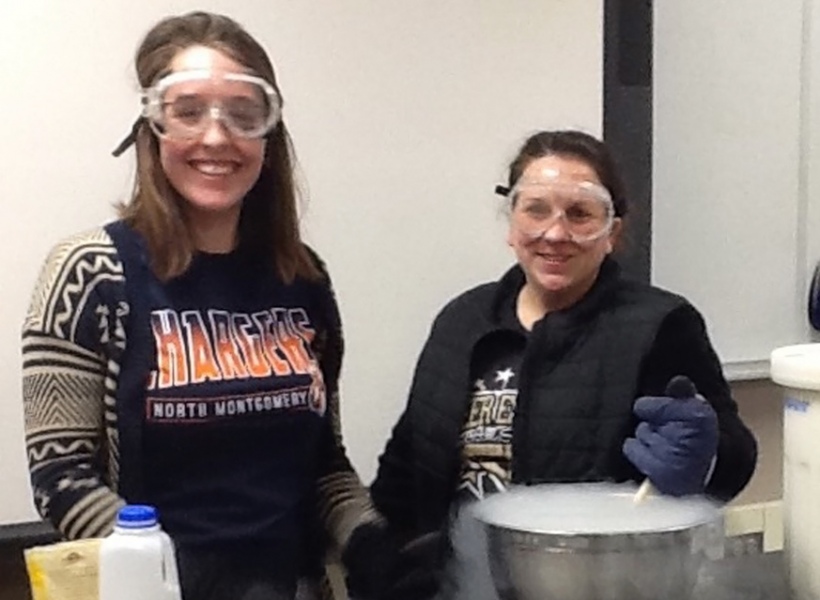News
Past WW Teaching Fellows mentor new class of aspiring teachers
Working with her two mentors as a Woodrow Wilson Teaching Fellow at Purdue five years ago, Alyce Myers TF ’09 observed two very different teaching styles. One of her cooperating teachers used a very hands-on approach in the classroom; the other relied more on lectures.
Watching and working with her mentors, Ms. Myers gleaned what she called her most important lesson as a new teacher: You need to become your own teacher.
“You have to figure out who you are as a person and as a teacher and teach based on what best represents you and your strengths,” she says. “You need to be comfortable in what you are doing.”
Now, as a master teacher herself, Ms. Myers is trying to teach that same ethos to new Woodrow Wilson Teaching Fellows—recent graduates and career changers who are transitioning into the classroom.
Each teacher candidate who comes through the Woodrow Wilson Teaching Fellowship spends a full school year in a classroom with a master teacher. As a way to combat the pitfalls of traditional student teaching, Fellows enter the classroom much earlier and are able to work through lessons and get feedback and assistance in real time.
Ms. Myers’ current Fellow from Purdue, Kathryn Stwalley TF ‘12, finds the ability to try new things in the classroom very helpful. “The freedom and flexibility has been invaluable to my preparation,” says Ms. Stwalley. “Even if something falls flat, we have been able to put the pieces together with the students to make sure that something valuable was still salvageable from my time.”
Ms. Stwalley also finds Ms. Myers’ previous experience as a Fellow to be helpful in their relationship. “She has taken the time to get to know my prior knowledge instead of assuming every experience is new to me, and instead she challenges me in the areas she knows I am trying to improve on.”
Keith Manring TF ‘09, like Alyce Myers, was one of the first WW Indiana Teaching Fellows. During his work as a Fellow at the University of Indianapolis, his mentors offered him not only troubleshooting, but also crucial connections between different aspects of the program. “They help[ed] bridge the content from readings and university instruction to effective practice with students,” said Mr. Manring.
By being present in the classroom so early in the program, Fellows get a feel for the type of school where they will be teaching, from the first day students arrive (and the challenges of engaging them) until school ends and administrative needs are wrapped up. Part of the Fellowship commitment includes teaching for three years at a high-need urban or rural school. In this context, the master teacher “provides a kind of starting framework for instructing a given group of students in a specific setting,” says Mr. Manring. “This allows the Fellow to take that foundation in their own direction.”
The relationship between mentor and Fellow also allows for a great deal of collaboration. Both parties see benefit from this aspect of the relationship. Ms. Stwalley looks to her mentor, Ms. Myers, as she prepares for student teaching: “We’re continually bouncing ideas around. This sense of urgency, awareness, and openness has been the best help as I’m wrapping my mind around this next stage.”
“I think my students and I benefit tremendously any time I can get a second caring adult into my classroom,” master teacher Mr. Manring explained. “Offering to be a mentor was one way to provide that opportunity. I think it makes me a better teacher and provides more people in the room helping them learn.”
“I have found that my mentees have supplied me with so many ideas and have allowed me to continue to grow as a teacher,” says Ms. Myers. “Having another person to bounce ideas off of, coteach, and talk to is a great opportunity regardless of whether you are the mentor or mentee.
“It’s a learning and growing experience for us both,” she adds. “That’s what education is all about after all, learning and growing.”
###
This story appeared in our Spring 2015 newsletter. To view the full newsletter online, click here.


